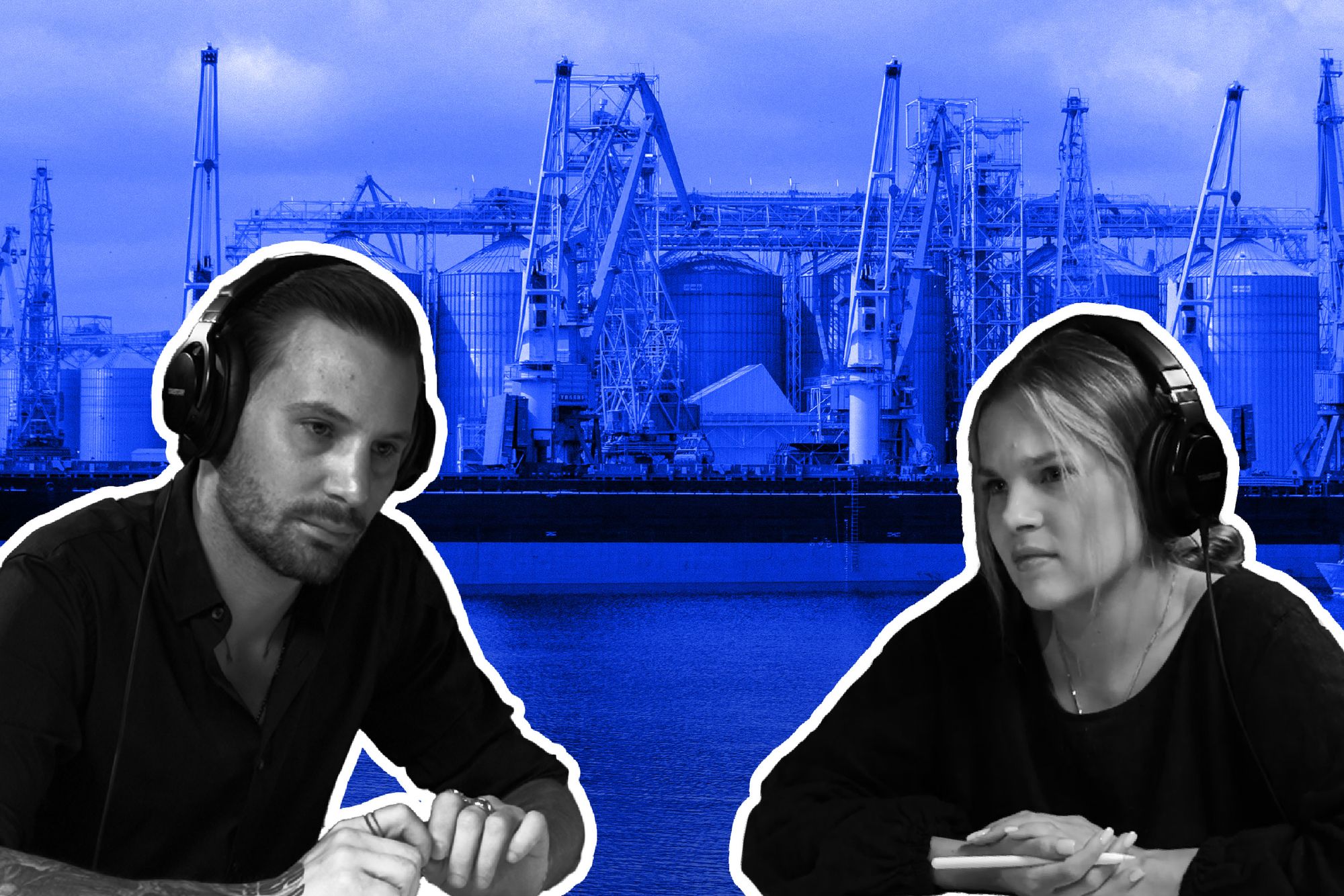Media: Greece, Bulgaria discuss transit of Ukrainian grain by rail.
Bulgarian Prime Minister Nikolai Denkov and his Greek counterpart Kyriakos Mitsotakis discussed transporting Ukrainian grain to Greece via rail, Mediapool reported[1] on July 24, citing Denkov. The Bulgarian head of government said this after meeting Mitsotakis in Athens on July 24. According to Mediapool, Bulgarian trains would load Ukrainian grain at the Ukrainian-Romanian border and transport it to the Greek port of Alexandroupoli.
As the outlet noted, it is unclear whether Bulgaria has the necessary transport capacities as its state railways suffer from a shortage of locomotives and freight cars. However, Greece has begun developing its railway lines which are of interest to Bulgaria, Mediapool commented. Russia withdrew[2] from the Black Sea Grain Initiative on July 17, effectively terminating the deal that allowed Ukraine to export its agricultural products even amid the ongoing full-scale invasion.
Ukraine is one of the world's leading grain producers and exporters and the agreement, brokered by Turkey and the U.N. in July 2022, has played a crucial role in stabilizing food prices worldwide. The EU promised[3] to support Ukraine's efforts to export its agricultural products via the so-called "solidarity lanes," set up in May 2022 to assist Kyiv in shipping out its produce. According to President of the European Commission Ursula von der Leyen, the solidarity lanes facilitated the export of more than 45 million tonnes of grain, oilseed, and other products so far.
Croatia also offered[4] its rail network and ports on the Adriatic Sea as an alternative route for Ukrainian grain. However, five EU members including Poland, Slovakia, Hungary, Romania, and Bulgaria asked[5] Brussels to prolong the ban on the sale of Ukrainian grain products in these countries at least until the end of 2023. In May, the European Commission instituted the ban on wheat, maize, rapeseed, and sunflower seeds to "alleviate logistical bottlenecks" related to these goods in the five countries.
The ban was extended on June 5, set to expire by Sep.
15. According to Polish Prime Minister Mateusz Morawiecki, the Central European EU members will nevertheless allow the transit of Ukrainian grain through their territory elsewhere.
This Week in Ukraine Ep.
17 - Black Sea grain deal is dead. What can Ukraine do?
Episode #17 of our weekly video podcast "This Week in Ukraine" is dedicated to the Black Sea grain deal, how Russia weaponized it, and ultimately killed it. Host Anastasiia Lapatina is joined by the Kyiv Independent's reporter Alexander Query. Listen to the audio version of the podcast on Apple, S...
 [6]
[6]  Martin Fornusek
Martin Fornusek
News Editor
Martin Fornusek is a news editor at the Kyiv Independent.
He has previously worked as a news content editor at the media company Newsmatics and is a contributor to Euromaidan Press. He also volunteers as an editor and translator at the Czech-language version of Ukrainer. Martin studied at Masaryk University in Brno, Czechia, holding a bachelor's degree in security studies and history and a master's degree in conflict and democracy studies.
References
- ^ reported (www.mediapool.bg)
- ^ withdrew (kyivindependent.com)
- ^ promised (kyivindependent.com)
- ^ offered (kyivindependent.com)
- ^ asked (kyivindependent.com)
- ^ This Week in Ukraine Ep.
17 - Black Sea grain deal is dead. What can Ukraine do?Episode #17 of our weekly video podcast "This Week in Ukraine" is dedicated to the Black Sea grain deal, how Russia weaponized it, and ultimately killed it. Host Anastasiia Lapatina is joined by the Kyiv Independent's reporter Alexander Query.
Listen to the audio version of the podcast on Apple, S...
(kyivindependent.com)